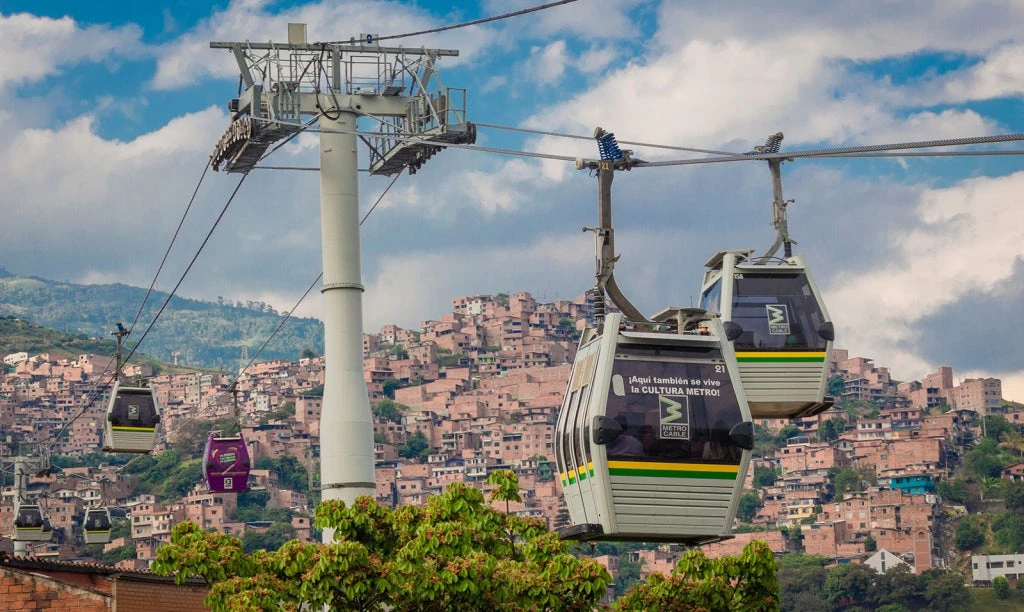
From hurricanes to devastating floods and heat waves, the headlines about recent weather events make it hard to ignore the reality of climate change. To tackle the growing climate crisis, leaders from government, the private sector, and civil society will gather at the United Nations Climate Action Summit on September 23, 2019 to coordinate and scale up efforts toward a low-carbon future.
This coincides with an important date for the Sustainable Mobility for All initiative (SuM4All). Three years ago, at the 2016 Climate Action Summit, the World Bank proposed the creation of a global coalition of transport stakeholders to transform the future of mobility. The case for action was clear: with about a quarter of energy-related GHG emissions coming from transport, the sector had a key part to play in the success of the Paris Agreement on Climate Change, but had been struggling to speak with one voice and lay out a coherent agenda for the sustainable mobility. The idea of a global transport coalition received the support of the United Nations, and, out of this call for action, SuM4All was born.
Much has happened in three years: the coalition now brings together some 55 member organizations and has become a pivotal platform for shaping and coordinating transport policy. Key milestones include:
- The identification of four essential and complementary policy goals to frame the global conversation on sustainable mobility: green transport, equitable access, safety, and efficiency.
- The release of the Global Mobility Report, which assesses the performance of the transport sector against these four policy goals. The report revealed severe gaps in the sector and showed that no country currently meets the criteria for sustainable mobility, highlighting the need for urgent action around the world.
- To act upon these findings, SuM4All is getting ready to launch the Global Roadmap of Action Toward Sustainable Mobility which will identify concrete policy measures and help policymakers develop context-specific plans to achieve sustainable mobility.
But much more is needed. At the CAS 2019, SuM4All will join forces with the most relevant actors in the field to support the “Action Towards the Climate-Friendly Transport” (ACT) Declaration of Intent. With this engagement, SuM4all will ensure that we support countries in their transition toward a transport sector that is environmentally-friendly, as well as accessible to all, safe and efficient, through a comprehensive policy framework defined by the Global Roadmap of Action toward Sustainable Mobility.
As we move toward the Climate Action Summit 2019, I thought it would be a good idea to share with you some useful policy actions that could help tackle climate change and act for sustainable mobility:
1. Be bold – don’t consider cars only
Most transport and urban planning policies are geared toward the automobile, and the current excitement about electric cars or autonomous vehicles is only reinforcing this trend. While these disruptive technologies certainly hold great promise, we have to bear in mind that they also come with a number of risks, and cannot realistically fix all the woes of the current mobility system. Greener, smarter cars should be part of a much broader mobility revolution that puts alternative modes to the forefront, including public transport, cycling, and walking. Key approaches include dedicated lanes for public transport, managing parking more efficiently through the use of digital platforms, and designing safer streets for pedestrians and cyclists. The city of Medellín, for example, revamped its road network with “green corridors” to address the safety of pedestrians by designing crosswalks through planters and sidewalks. The green corridors help protect the local environment by improving air quality and water management, and increase sustainability through innovative solutions based on nature.
Likewise, less traditional modes of transport can sometimes go a long way. In Medellín and Quito, where the terrain made commuting difficult, new cable car and escalator systems are providing an easy, efficient connection between hillside neighborhoods and the downtown core, with significant benefits for local residents.
2. Connect the dots between electric vehicles and renewable energy
The transport industry is undergoing a major shift toward electrification, which has led many governments to invest significant resources into electric public transport. As part of this movement, Rio de Janeiro, Santiago de Chile, Mexico City, and Medellín have joined the growing list of cities that have committed to procuring only zero-emission buses by 2025, and to creating extensive zero-emission zones by 2030. Santiago alone has recently taken delivery of some 200 zero-emissions buses, with another 183 coming soon.
However, it is important to emphasize that the environmental benefits of electric vehicles will only materialize if they run on clean electricity: although EVs themselves don’t release greenhouse gas into the atmosphere, we can’t ignore the carbon footprint of the electricity that powers them.
3. Use public procurement to foster innovation from the private sector
Although largely unused, public procurement can be an effective and relatively straightforward way to advance sustainable mobility. Mobility products and services commissioned by governments are often worth millions of dollars, giving them significant influence and bargaining power over companies competing for their business. Therefore, by setting more stringent requirements on performance, cost, environmental impact, and other important dimensions, public clients can give the private sector new incentives to innovate.
If you want to learn more about transport and climate action, please note we will be digging deeper into the issue in an upcoming blog post. In the meantime, we invite you to share your ideas for climate-smart mobility in the comments section, and to sign the Action towards Climate-friendly Transport (ACT) Declaration of Intent.


Join the Conversation